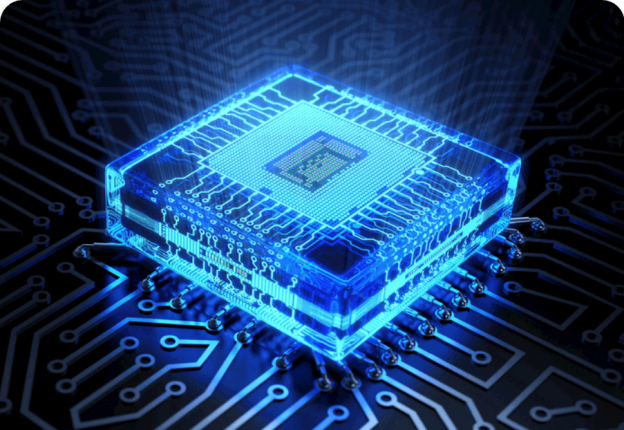
Huawei Technologies, based in Shenzhen, is facing challenges in securing enough high-end chips for its upcoming Mate70 smartphone. This struggle is a direct result of the ongoing the trade war against China which includes thechip war also. Both Huawei and its partner, Semiconductor Manufacturing International Corp (SMIC), are under US sanctions. They aimed to produce 2.5 million chips for the Mate70’s September launch but fell short due to limited manufacturing capacity and productivity issues. According to The Information, the primary reason for this shortfall is the persistent impact of a four-year-old US ban on supplying chip manufacturing tools to Huawei and SMIC.
Initially, it was expected that Huawei would launch the Mate70 in China on September 10, a day after Apple’s iPhone16 debut in the US. However, Chinese media now report that the Mate70 launch has been postponed to November. According to The Information, Huawei might still unveil the Mate70 next week, but with limited availability. The company plans to allow pre-orders, similar to the Mate60 Pro launch in August last year during US Commerce Secretary Gina Raimondo’s visit to Beijing. Raimondo, a key figure in the US chip war, expressed her frustration in September 2023 over the Mate60 Pro’s launch, which featured 7nm Kirin 9000s chips, indicating China’s ability to circumvent US chip bans.
During a US House hearing, she stated there was no evidence that China could produce 7nm chips at scale. Last October, she told the Senate that the Mate60 Pro launch was “incredibly disturbing.” If the Mate70 launches in November, Raimondo might avoid scrutiny from lawmakers before the US presidential elections on November 5. On September 5, Chinese IT websites reported that Huawei will unveil the world’s first triple-fold smartphone, the Mate XT, at a marketing event on September 10, but the Mate70 or Mate70 RS won’t be revealed.
According to Cailian Press, Huawei is set to launch the Mate70 in November, featuring HarmonyOS NEXT and a new Kirin processor. The Mate70 is expected to use the 7nm Kirin 9100 chip. A Guangdong-based IT columnist notes that various versions of the Kirin 9100 exist, with even the lowest-end model performing on par with Qualcomm’s Snapdragon 8+ Gen 1 processor. The columnist also claims that the Kirin 9100 can achieve video smoothness comparable to Snapdragon 8 Gen 2 and 3 processors.
Since 2019, the US has pressured ASML, the leading chip equipment supplier, to halt shipments of extreme-ultraviolet (EUV) lithography machines to China. EUV lithography can produce 7nm chips in a single exposure and 2-3nm chips with multiple exposures. Liang Mong-Song, SMIC’s managing director and former TSMC and Samsung engineer, led a team to create 7nm chips using Deep-Ultra-Violet (DUV) lithography and multiple exposures. In June, The Information reported that Huawei faced challenges in manufacturing its ascend 910B chip, equivalent to 80% of Nvidia’s A100, due to US Commerce Department’s export controls.
Experts calculated that Huawei can still meet its goal of producing 400,000 to 500,000 Ascend 910B chips this year, even with a 20% yield. If more capacity is needed for AI chips, Huawei could reduce Hi Silicon’s Kirin chip production. It’s unclear if Huawei and SMIC have slowed Kirin chip production for Ascend 910B. Despite yield differences, SMIC’s capabilities are only three years behind TSMC’s, based on the performance of shipped Chinese chips, according to Hiroharu Shimizu, CEO of Techana Lye.
In an interview with Nikkei last month, Shimizu noted that Hi Silicon’s design capabilities have improved, with its 7nm chips now performing on par with TSMC’s 5nm products. Since early this year, the Dutch government has ceased granting licenses for ASML to export its NXT:2000i and newer DUV immersion systems to China. On Friday, the Dutch government announced that ASML must apply for export licenses directly with them, rather than the US, for older machines like the NXT:1970i and 1980i DUV immersion lithography systems. This new rule takes effect on September 7.
Dutch Foreign Trade Minister Reinette Klever announced on Friday that the decision to tighten export controls on specific production equipment is driven by security concerns. She emphasized that technological advancements pose increased safety risks, especially in the current geopolitical climate. Klever highlighted the Netherlands’ unique and leading position, which comes with significant responsibility. The new licensing requirement targets specific equipment produced by a limited number of Dutch companies and affects only a small portion of their product portfolios. ASML stated that the updated requirement is a technical change aimed at harmonizing the export license process. Media reports suggest that The Hague will evaluate export license applications on a case-by-case basis, with China potentially being the focus of this new rule. Recently, the US Commerce Department’s Bureau of Industry and Security (BIS) introduced new export controls targeting quantum computers, advanced chip-making equipment, and GAAFET technology for supercomputers. The BIS emphasized its efforts to build international coalitions with 38 countries to enhance export controls and weaken Russia’s military capabilities, along with its allies Belarus and Iran. Although China wasn’t explicitly mentioned, the restrictions seem directed at it. Chinese Foreign Ministry spokesperson Mao Ning criticized the US for weaponizing economic issues and disrupting global supply chains.